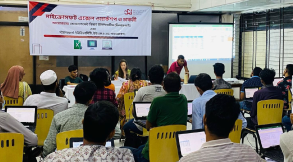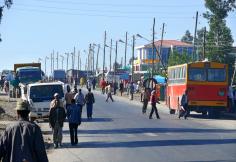There is little consensus on whether access to foreign export markets can promote gender equality in developing countries. This paper leverages the US-Vietnam Bilateral Trade Agreement (BTA) that came into force in 2001 as a natural experiment to explore whether the disproportionate expansion of the female-intensive wearing apparel sector can promote gender equality at the household level. By using a difference-in-differences strategy and through relying on panel data, I find that women in provinces that were more exposed to the BTA were more likely to work in the wearing apparel sector. These women also increased their income substantially relative to their husbands. I then examine whether such improvements in labour market opportunities and relative income led to changes in the allocation of resources that could be indicative of higher female intrahousehold bargaining power. I find that the share of household resources allocated to ‘female-preferred’ goods did not increase in provinces that experienced more exposure to the BTA, nor did the share of ‘male-preferred’ goods.
STEG Working Paper Series
• Research Theme 2: Labour, Home Production, and Structural Transformation at the Level of the Household,
Research Theme 4: Trade and Spatial Frictions,
Cross-Cutting Issue 1: Gender,
Cross-Cutting Issue 3: Inequality and Inclusion
Trade-induced Structural Transformation and Household-level Inequality: Lessons from Vietnam

Related content





































































































